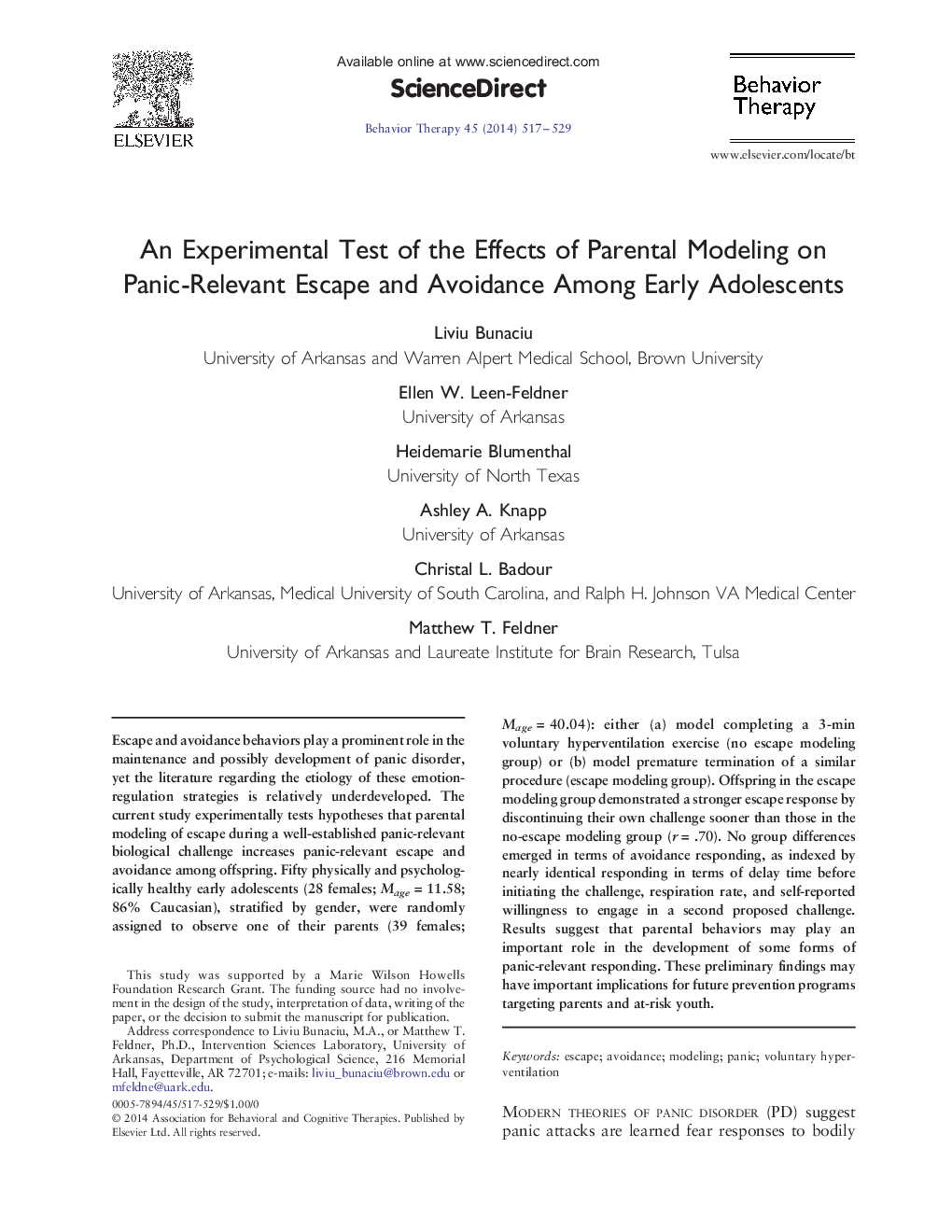| Article ID | Journal | Published Year | Pages | File Type |
|---|---|---|---|---|
| 901317 | Behavior Therapy | 2014 | 13 Pages |
•We examined the impact of parental modeling of escape on adolescent behaviors•Adolescent escape and avoidance were indexed during a panic-relevant challenge•Parental modeling of escape influenced adolescent escape behaviors•Parental modeling of escape did not influence adolescent avoidance behaviors•Parental behaviors may be important in the development of panic-relevant responding
Escape and avoidance behaviors play a prominent role in the maintenance and possibly development of panic disorder, yet the literature regarding the etiology of these emotion-regulation strategies is relatively underdeveloped. The current study experimentally tests hypotheses that parental modeling of escape during a well-established panic-relevant biological challenge increases panic-relevant escape and avoidance among offspring. Fifty physically and psychologically healthy early adolescents (28 females; Mage = 11.58; 86% Caucasian), stratified by gender, were randomly assigned to observe one of their parents (39 females; Mage = 40.04): either (a) model completing a 3-min voluntary hyperventilation exercise (no escape modeling group) or (b) model premature termination of a similar procedure (escape modeling group). Offspring in the escape modeling group demonstrated a stronger escape response by discontinuing their own challenge sooner than those in the no-escape modeling group (r = .70). No group differences emerged in terms of avoidance responding, as indexed by nearly identical responding in terms of delay time before initiating the challenge, respiration rate, and self-reported willingness to engage in a second proposed challenge. Results suggest that parental behaviors may play an important role in the development of some forms of panic-relevant responding. These preliminary findings may have important implications for future prevention programs targeting parents and at-risk youth.
